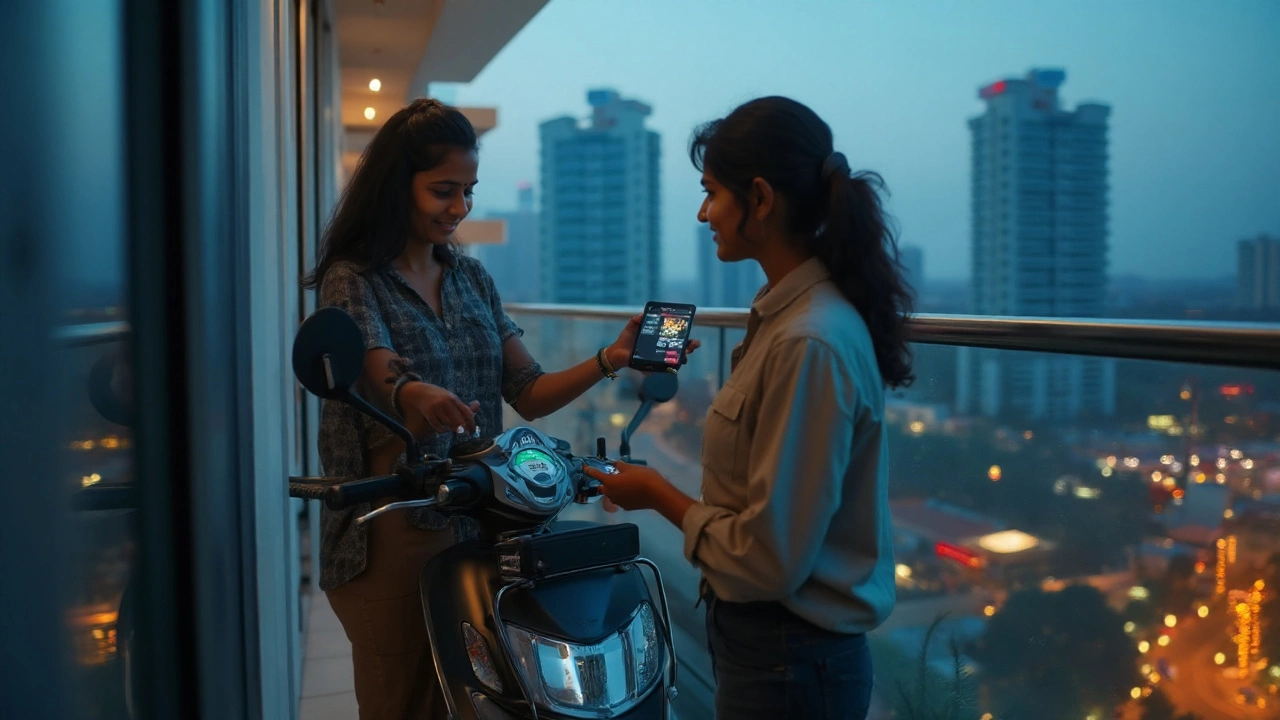
If you’re a working locksmith (or about to train up), you don’t just want a big number on a job sheet-you want real take-home pay. The simple question hiding behind that is: where do locksmiths actually make the most money? Spoiler: the fastest way to higher income isn’t only a big city. It’s the right mix of demand, pricing power, niche skills, and costs you can keep under control. If you care about the exact locksmith salary hotspots and how to pick one-or make your current market pay more-this breaks it down with clear math, real rates, and a practical plan.
- TL;DR: Highest gross rates show up in places like US coasts (NYC, Bay Area), London, Vancouver, and Australia’s big cities and mining regions-but margins can be better in mid-size, fast-growing metros.
- After cost-of-living, strong value spots in 2025: US Sun Belt (Austin, Tampa, Phoenix), Canada’s Prairie metros (Calgary, Edmonton), UK North/ Midlands (Manchester, Leeds), and Ireland’s Cork/Galway.
- Niches that pay above market: automotive key programming, access control/door hardware, safes and vaults, commercial master keying. Emergency 24/7 adds a premium-if you structure it right.
- Use the margin math: Weekly profit = (jobs × average ticket) − (fixed + variable costs). Your effective hourly rate comes from profit ÷ billable hours, not the top-line price.
- Data sanity check: Official job-level pay stats exist in the US (BLS). Elsewhere, use a blend of national stats, trade bodies, and market rates. Always cross-check with local licensing rules.
The high-pay map: where locksmiths gross the most in 2025
When people ask “Where do locksmiths make the most money?”, they usually mean gross revenue potential. That’s driven by callout fees, after-hours premiums, and niche jobs like automotive programming or access control. Here’s a clear picture by region using 2024 published figures, trade data, and live market rates from active operators.
United States:
- Big coastal metros-New York City, San Francisco Bay Area, Seattle, Boston, Washington DC-post the highest fees per job. Daytime lockouts can run $110-$180; after-hours $180-$300+; auto keys $200-$450.
- High-demand, high-growth metros-Austin, Denver, Phoenix, Tampa, Nashville-show slightly lower sticker prices but high job volume with friendlier cost structures.
- Notable niche pockets: resort towns (on-call premiums), college cities (constant lockouts), and multi-family dense suburbs (recurring rekeys, access control installs).
Canada:
- Vancouver and Toronto run high gross rates; Vancouver often edges ahead on after-hours. Calgary and Edmonton pay well, especially for commercial work and automotive, with better margins due to lower costs.
- Auto programming and fleet contracts are reliable earners where winters are harsh and immobilizer issues spike service calls.
United Kingdom & Ireland:
- London sits at the top for per-call fees-day rates often £120-£180 and nights £180-£250-but fuel, parking, and ad spend can chew your margins. Many independents report steadier take-home in Manchester, Leeds, Birmingham, Glasgow, and Edinburgh.
- In Ireland, Dublin leads on rates (roughly €90-€130 day, €150-€220 night), but Cork and Galway often deliver better net income thanks to lower costs and less cutthroat advertising auctions.
Australia & New Zealand:
- Sydney and Melbourne command high job prices; Perth benefits from mining-adjacent demand and emergency coverage premiums. After-hours callouts of AUD $220-$320 are common in busy zones.
- Regional hubs (Newcastle, Sunshine Coast, Geelong) can hit a sweet spot-solid rates, lower overheads, loyal repeat clients.
Western Europe & Gulf:
- Switzerland and Norway typically post strong gross rates and stable commercial work, but taxes and living costs are steep. Amsterdam, Copenhagen, and Munich are solid for access control and facility contracts.
- Dubai/Abu Dhabi can pay well for facility lock/door techs in large developments and hospitality, mostly within employer roles rather than solo mobile operators.
What the official stats say: The U.S. Bureau of Labor Statistics (May 2023) reports national medians for “Locksmiths and Safe Repairers,” with the top decile a clear jump above the median-often reflecting auto and commercial specialists and metro-based firms. In the UK, the Office for National Statistics’ ASHE tables don’t cleanly isolate locksmiths, so use trade benchmarks and market rates. In Ireland, the Private Security Authority regulates locksmiths; income varies by business model. In Canada and Australia, provincial/state licensing and job bank data help, but most pay signals still come from posted rates and trade networks.
What really drives high earnings: pricing power, niches, and rules
Before you chase a city, get a grip on why pay differs. It’s not random.
- Low supply, regulated entry: Where licensing is strict-Texas (DPS Private Security), California (BSIS), Ireland (Private Security Authority), parts of Australia (state security licensing)-fewer operators can drive higher, more stable pricing. Where deregulated, you’ll face more price competition and lead-gen churn.
- Property churn: Areas with lots of rentals, student lets, and short-term stays have constant rekeys and lockouts. University towns and fast-growing suburbs are sneaky-good markets.
- Automotive complexity: Modern immobilizers and proximity keys turn auto programming into a high-margin niche. If your kit covers late-model European and Asian makes-and you stock key inventory-you can double your average ticket.
- Commercial compliance: Fire code, door closers, panic hardware, and access control create recurring revenue. Facilities, schools, hospitals, and logistics centers don’t shop only on price-they buy uptime and compliance.
- 24/7 coverage done right: Nights and weekends pay a premium, but only if you manage dispatch, boundaries, and minimums. The “always yes” trap burns out techs and kills margins.
- Ad auctions and lead-gen: In big cities, Google Ads and Local Services Ads can get expensive. If every job starts with paid ads or aggregator fees, your net shrinks. Many top earners build direct repeat business and B2B accounts.
Licensing quick notes (check your local regulator):
- United States: State-by-state rules. Examples include Texas DPS Private Security Program; California BSIS locksmith company licensing; New York City requires a locksmith license. Florida removed statewide locksmith licensing in 2020, increasing competition.
- United Kingdom: No mandatory government locksmith license, but membership in bodies like the Master Locksmiths Association signals trust. DBS checks help with commercial contracts.
- Ireland: Locksmiths must hold a Private Security Authority license under the 2016 regulations. Expect vetting and compliance obligations.
- Canada: Provincial regimes vary; Alberta and British Columbia regulate under security services acts.
- Australia: Varies by state/territory (e.g., QLD Security Provider, NSW security licensing for certain installs). Always verify scope (locks vs. electronic access).
Authoritative sources to consult for pay and regulation: U.S. Bureau of Labor Statistics (occupation 49-9094), UK ONS ASHE tables, Ireland’s Private Security Authority, Statistics Canada Job Bank, Australian state security licensing authorities. Use these for guardrails, then validate with live market rates.

Show me the money: real-world rates, margin math, and COL adjustment
Sticker price is nice, but it’s margin that pays your mortgage. Here’s a snapshot of typical 2025 market rates by city. These are ballpark figures from operators and public price lists; your numbers will vary by neighborhood, competition, and your niche.
| Market | Day lockout | After-hours lockout | Auto key (basic transponder) | Notes |
|---|---|---|---|---|
| San Francisco Bay Area (US) | $120-$180 | $200-$300+ | $220-$450 | High ad costs; strong auto/commercial demand |
| New York City (US) | $110-$160 | $180-$300 | $200-$400 | Parking/traffic cost; dense repeat demand |
| Seattle (US) | $100-$150 | $160-$250 | $200-$380 | Strong tech commuter belts |
| Vancouver (Canada) | CAD $140-$200 | CAD $220-$320 | CAD $250-$500 | High housing costs; solid after-hours premiums |
| Calgary (Canada) | CAD $120-$180 | CAD $200-$300 | CAD $230-$450 | Good margins; commercial work available |
| London (UK) | £120-£180 | £180-£250 | £200-£400 | Top-line high; overhead high too |
| Manchester (UK) | £80-£120 | £120-£180 | £160-£320 | Often better net than London |
| Dublin (Ireland) | €90-€130 | €150-€220 | €200-€380 | Licensing required; competition concentrated |
| Cork (Ireland) | €80-€110 | €120-€180 | €180-€340 | Balanced demand and costs |
| Sydney (Australia) | AUD $120-$170 | AUD $180-$260 | AUD $250-$450 | Busy after-hours; traffic overhead |
| Perth (Australia) | AUD $140-$200 | AUD $220-$320 | AUD $280-$500 | Mining-adjacent premiums |
| Zurich (Switzerland) | CHF 120-200 | CHF 200-350 | CHF 250-500 | High gross, high costs and taxes |
Margin math you can trust:
- Estimate average ticket: If you do one auto key (€260), one residential rekey (€180), and one lockout (€110) in a day, your daily average is (€260 + €180 + €110)/3 ≈ €183.
- Weekly revenue: average ticket × jobs per day × days worked. Example: €183 × 3 × 6 ≈ €3,294.
- Subtract fixed costs: insurance, vehicle payments, equipment finance, software, phone, storage/rent, licensing.
- Subtract variable costs: ad spend, fuel, parking, card fees, key blanks/stock, parts, subcontractor splits.
- Effective hourly rate: profit ÷ billable hours (not total hours out of the house). If you’re on the road 55 hours but bill 28, use 28.
Example snapshots (solo mobile, realistic but simplified):
- Dallas, US: 3 jobs/day, $150 avg, 6 days → $2,700/week. Costs/fuel/ads/supplies/insurance/equipment ≈ $830 → ~$1,870 pre-tax. With ~36 billable hours, effective ≈ $52/hour before tax.
- London, UK: 3 jobs/day, £140 avg, 6 days → £2,520/week. Costs (fuel, parking, congestion, ads, small workshop) ≈ £940 → ~£1,580 pre-tax. Plenty of work, but overhead is real.
- Dublin, Ireland: 3 jobs/day, €130 avg, 6 days → €2,340/week. Costs (fuel, tolls, ads, supplies, insurance, finance) ≈ €700 → ~€1,640 pre-tax. Licensing and reputation help you hold price.
Cost-of-living reality check: A $2,000 net week in Phoenix can feel better than $2,200 in San Francisco. Use regional price parities (U.S. BEA), OECD/World Bank PPP for cross-country checks, and local rent benchmarks. The point isn’t academic-it’s how far your net goes.
Pricing rules of thumb:
- Minimum callout: Set a floor that covers travel + admin + card fees. In most cities, anything under $85/£75/€80 daytime leaves little margin.
- After-hours premium: 1.5× to 2.2× your day rate, depending on distance and risk. Cap your radius at night.
- Auto keys: Price by chip complexity and stock risk. Never underprice proximity keys; your tooling and updates aren’t free.
- Commercial: Quote labor + hardware + compliance. Add a maintenance option for doors and closers-recurring revenue is margin’s best friend.
How to choose a market-or make your current one pay more
If moving is on the table, pick a place where your skills turn into pricing power with reasonable competition. If you’re staying, tweak your model so every call pays better. Here’s a simple framework either way.
Decision heuristics for picking a city/area:
- Population and churn: Aim for a 30-45 minute radius with at least 200,000 residents and plenty of rentals or student housing. That’s steady lockouts and rekeys.
- Competitor density: Search maps for “locksmith” and count active, well-reviewed independents. If there are 30 in a tight radius, expect ad wars.
- Regulation: Licensing requirements can be your moat. Fewer qualified competitors often equals better pricing and trust.
- Commercial base: Logistics parks, hospitals, campuses, and multi-family operators signal access control and master key revenue.
- Ad market sanity: If the cost per call from ads tops 25-30% of revenue, look for referral channels or a different neighborhood.
Make-more-now playbook (no move required):
- Raise your floor: Increase your minimum callout by 10-20% and bundle a quick service (e.g., one cylinder rekeyed). Customers accept value.
- Stop low-margin services: If safe moves or niche euro-auto keys are loss-making in your area, pause them and channel calls to partners for a referral fee.
- Specialize deliberately: Pick one high-value lane this quarter-auto programming, door hardware/closers, or access control. Master it, market it, and raise your average ticket.
- Own a patch: Set tight zones for emergency calls. Close-by jobs mean more calls per shift and lower fuel/time waste.
- Price nights like a pro: Night rates need a hard minimum and a firm radius. Say no to 2 a.m. 40-minute drives unless it’s priced like it matters.
- Pre-sell maintenance: Offer door/closer checkups and rekey packages to apartments, student housing, and offices. Recurring revenue smooths slow weeks.
- Protect your ad spend: Track calls from every channel. If a lead-gen vendor eats 40% of the ticket, replace it with local SEO and direct partnerships.
- Stock to sell: Carry the top 20 blanks, common cylinders, and a few smart locks. The upsell you can’t install today is money you don’t bank.
- Respond like lightning: Speed wins. Aim for accurate ETAs and quick follow-ups on quotes. Higher close rates beat tiny price tweaks.
- Document and show: Photo your door fixes, closer installs, and master key work. Google profile posts and case studies build trust and justify price.
Licensing and paperwork checklist before you scale:
- Confirm state/provincial licensing (or city-level, e.g., NYC). Keep background checks and insurance current.
- Public liability/commercial auto cover sized for your projects and any subcontractors.
- Tax registrations and simple bookkeeping. Cash flow fails faster than tools break.
- GDPR/PII hygiene where relevant (residential addresses, lock codes, access logs). Clients care, especially commercial.

Cheat-sheets, FAQs, and realistic next steps
Quick checklists and straight answers save time. Use these as a reality filter before you pick a market or overhaul your pricing.
Market fit cheat-sheet (5-minute scan):
- Households within 30-45 minutes: 200k+
- Universities or large rental stock within 20 minutes: Yes
- At least 3 big commercial anchors (hospital, logistics park, campus): Yes
- Competitors with 200+ Google reviews within 20 minutes: ≤ 10
- Licensing/regulation creates a skill moat: Yes
- After-hours demand (airport, nightlife, hotels) within reach: Yes
Pricing sanity cheat-sheet:
- Day minimum covers travel + 20 minutes labor + card fee: Yes
- Night premium at least 1.7× day minimum: Yes
- Average ticket above $150/£120/€140: Aim for it with bundling
- Ad spend per booked job: ≤ 25-30% of revenue
- Stock turns in 60-90 days on common parts: Yes
Mini-FAQ:
- Is moving to London or NYC worth it for pay? You’ll see high gross rates, but overhead and ad costs are heavy. Many locksmiths net more in second-tier cities with strong demand.
- Can a new locksmith hit $100k/£80k/€90k in year one? Yes, with automotive or commercial focus, tight service zones, and clear pricing. It’s a stretch without a niche and smart marketing.
- Do I need a storefront? Not for residential/auto. For commercial hardware, a small shop can help with inventory and trust signals, but it’s optional if you run lean.
- Franchise or independent? Franchises provide branding and systems but take a cut. Independents keep margin and control. Run the math with your local ad costs.
- How many calls per day do I need? Most solo operators target 2-4 quality jobs per day at a healthy average ticket. Volume alone without margin burns you out.
- What about safes? Safe work is specialized and can pay very well, but practice and tooling take time. It’s a great third-year niche once you’ve stabilized core revenue.
Next steps by scenario:
- New locksmith in a small town: Partner with nearby cities for overflow at set rates, build relationships with property managers, and offer emergency coverage in a tight radius. Invest in core auto programming for common makes.
- Auto-focused tech in a mid-size city: Expand key inventory for late-model proximity keys, raise your night minimum, and sell spare keys when you do lockouts. Upsell door/ignition repairs to increase ticket size.
- Commercial-leaning locksmith in a big metro: Aim for facility contracts-doors, closers, exit devices, and access control. Package quarterly maintenance. Price projects to include compliance documentation and rapid response SLAs.
- Thinking about moving countries: Check licensing and visa rules first. Validate demand by calling competitors as a “customer” at off-hours, scan job boards for pay signals, and map ad costs with small test campaigns.
When in doubt, do this one thing: track every call, job type, source, distance, and net margin for 30 days. The pattern you’ll see-your profitable jobs, time sinks, and best neighborhoods-will answer where you make the most money, even if you never move an inch.

